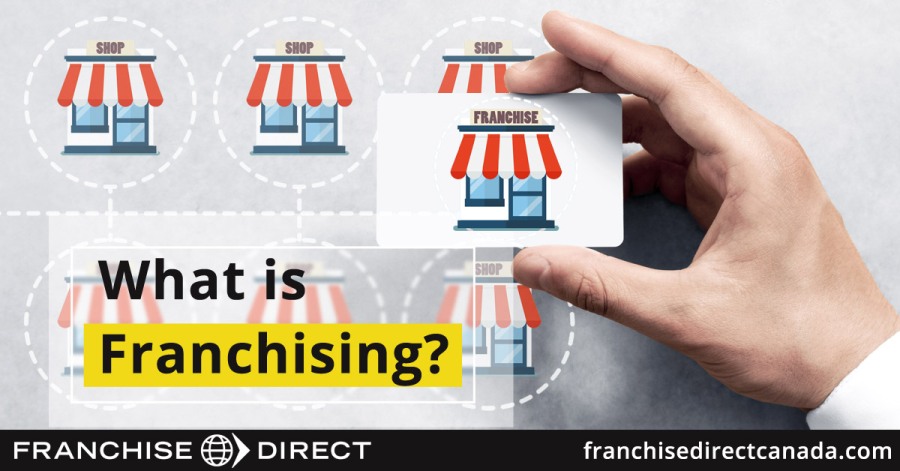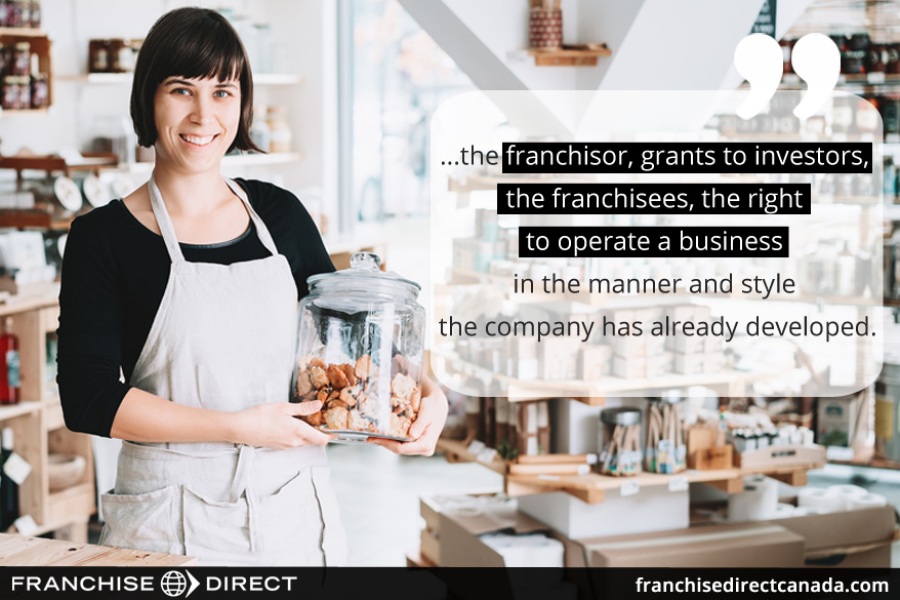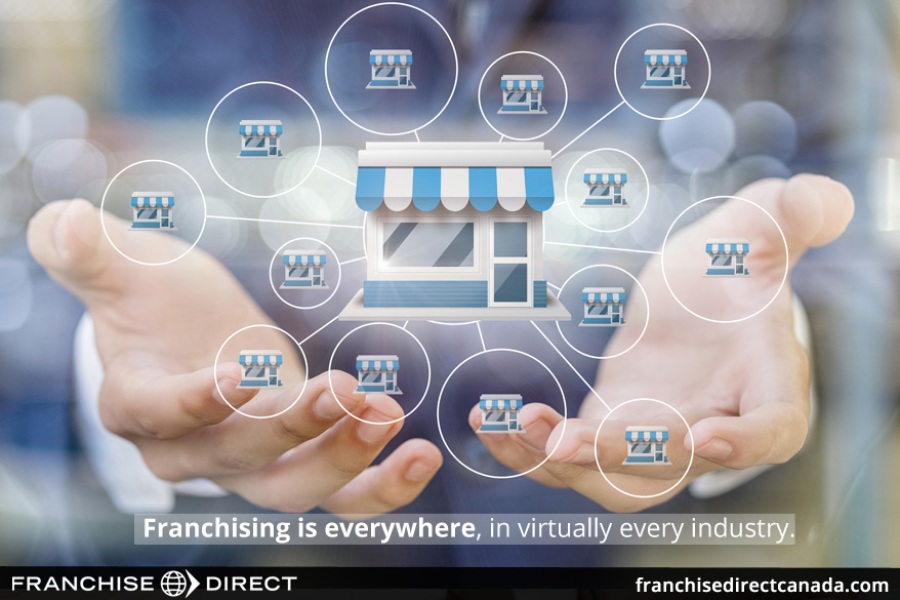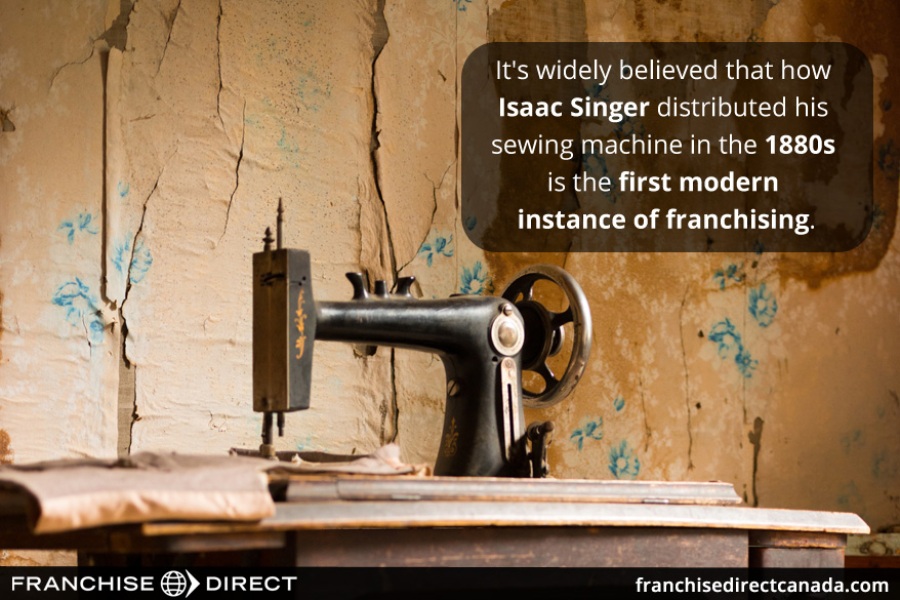🕒 Estimated Reading Time: ~4 minutes

You want to be your own boss and run your own business, but aren't sure where to start. What resources do I need? How do I market products and services? How would I hire and train employees? Those are just a few of the questions going through your head.
You've also seen slogans like:
- "Be in business for yourself, but not by yourself."
- "When you succeed, we succeed."
- "We've been successfully putting people like you in business for 16 years!"
- "Be your own boss; we'll help you get there."
These quotes from franchisors, or the businesses that offer franchise opportunities, have piqued your interest. Could a franchise be the right choice for you? But, what is franchising?
Franchising Defined
Put simply, a franchise is a method of business expansion by which the owner of a business, the franchisor, grants to investors, the franchisees, the right to operate a business in the manner and style the company has already developed.

Franchising is a comprehensive business relationship, not just a buyer-seller relationship, best described as a pooling of resources and capabilities.
The relationship is governed by a contract, the franchise agreement, which runs for a defined period of time, generally from five to 20 years. The agreement is typically renewable. During the term of the agreement, the franchisee will commonly pay certain fees to the franchisor for continued access to the franchisor's business system, training, marketing support, etc.
What are the Benefits of Franchising?
For franchisees, the benefits lay in the partnership. In franchising, franchisees gain access to the franchisor’s know-how and experience for its business system in exchange for their monetary investment and personal labor.
When you buy into a franchise, you're buying into an operational business concept, with processes clearly mapped out in that company's operations manual. Most franchisors also provide comprehensive training in how to operate the business and give clear instructions on how to use all the visible trappings such as trademarks, logos, uniforms, furnishings etc. The operations manual spells out all these details.
Via the operations manual and training, franchisees who want to own a business can shorten the learning curve time that comes with starting a business. It’s also a way for franchisees to avoid spending a significant portion of the money that typically comes along with developing a business idea.
On the other side of the deal, by licensing out its business methods and pledging support to franchisees, the franchisor allows itself the opportunity to expand into areas it may have had difficulty expanding to without the extra money and manpower.
A Universal Business Format
When people think of franchising, the most common example that comes to mind is McDonald's. But franchising is everywhere, in virtually every industry.
Think about the everyday purchases people make—many are from franchised businesses:
- You stop for coffee on your way to the office.
- You arrange to have your dry cleaning picked up and returned to you at work.
- You call a company to clean your carpets later in the week.
- You have an important document fast-tracked to a client overseas.
- You schedule a meeting with your business coach before enjoying a sandwich at your desk.
- You collect your child from day care on the way home.
- You stop by your local garage to have your car’s transmission checked.
- You order a meal on the phone to be delivered.

Every one of these product or service purchases is likely to be from a franchise. Yes, including the day care. Franchising has become part of the fabric of people's everyday lives because it provides an increasing array of familiar products and services.
And you can bet that when new trends emerge and grow popular—be it in food, exercise, home improvement, pet care, party planning, etc.—franchised versions ready to profit from these trends are sure to follow.
Where Did Franchising Come From?
Some have traced the roots of franchising back to the Middle Ages. However, it's widely believed that how Isaac Singer distributed his sewing machine is the first modern instance of franchising.
In the 1880s, Singer wanted to distribute his sewing machines outside of his immediate area, but he also wanted to instruct customers how to properly use them. So he found licensees in certain geographic areas (similar to the current franchise territory system) and gave them the rights to sell the sewing machines.

The licensees each paid for the right to sell the machines (similar to a royalty). They were also obligated by contract to teach their customers how to use the machines properly (akin to the parameters set in a modern-day franchise agreement).
A legal system for selling the rights to distribute a service or product was born.
Where is Franchising Headed Next?
The enduring success and widespread popularity of franchising offers endless potential.
What types of new franchises will be popular in the near future? Anything that helps busy people manage their home lives and domestic tasks.
And, on a grander scale, the current concerns about global warming are sure to generate companies that offer "green" eco-friendly products and services, such as lawn care, prepared foods, cosmetics, and cleaning supplies.
Are you ready to search for a franchise opportunity? Check out our exclusive listings of franchises ready to speak with you in our Top Franchise Directory.














